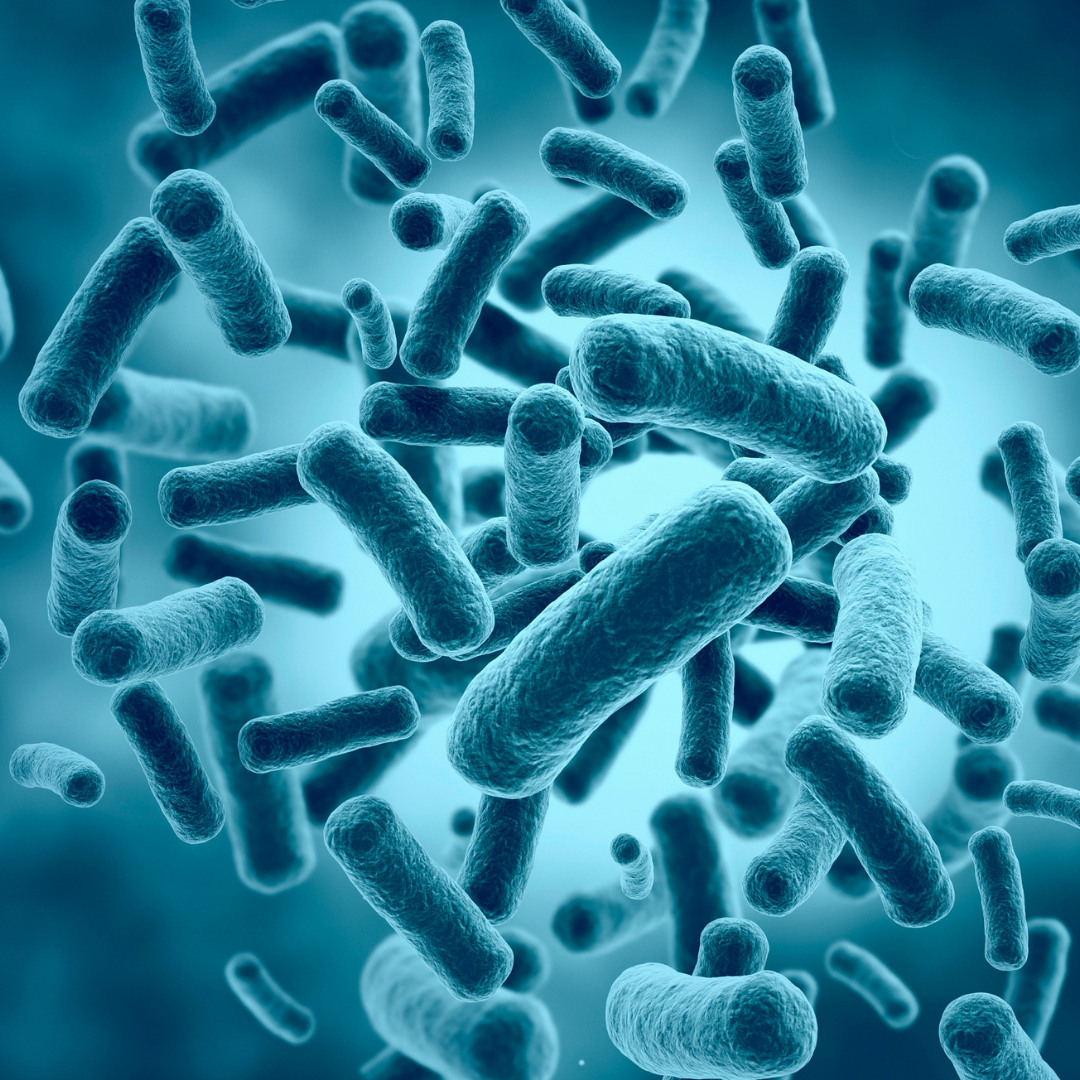KBW | The Many Contributing Factors in Anxiety

Anxiety disorders are the most common mental illness in the U.S., affecting 40 million adults in the U.S. age 18 and older. (aada.org)
Anxiety can rob you of the life you’re meant to live. But if you have anxiety, you don’t need me to tell you this; you already know it.
It can be debilitating and often feels like there’s no way out. But I found a way out for myself, so I have hope that you can too.
What causes anxiety?
I honestly have yet to work with someone that didn’t suffer from anxiety in some way, shape, or form. Why is my patient population so heavily stacked with anxious people? Because I work with people that don’t feel good.
They have gut issues, autoimmune disease, thyroid dysfunction, or stealth infections. And when ONE THING is off in your body….EVERYTHING is off in your body. Our bodies are amazingly complex machines. No organ system is an island, my friend. Everything is connected.
Potential Interrelated Causes
1. Toxins

-
This can include mycotoxins from mold, mercury toxins from silver amalgams, pesticides, VOC and more.
-
These things impact the way your body is able to methylate, detoxify, and make neurotransmitters, which all impact brain health.
2. The microbiome

-
Your gut bugs actually make neurotransmitters for you. When the ones you need for this process are not abundant enough, you guessed it; you don’t have enough neurotransmitters to go around.
-
And Bad gut bugs? Well, they can do a lot of damage too. According to researchers over at Viome (a premier stool testing kit), pathogenic bacteria can influence your stress response and produce harmful peptides that can cause chronic inflammation, which contributes to mood disorders.
-
A study in Cell by Hsaio et al. (2013) on children with autism found they had less Bacteroides fragilis, than their peers, and when mice with autistic behaviors were given Bacteroides fragilis, the behaviors ceased.
3. Genetics

-
Certain SNPs (single nucleotide polymorphisms) can impact a person’s predisposition to anxiety, but the effects of these SNPs can be mitigated by understanding and supporting the complex pathways our neurotransmitters travel down.
-
One other note on genetics: remember there are always two sides to a coin. COMT, one of the most well-studied SNPs in regard to anxiety, elevates dopamine in the prefrontal cortex, which causes rigid thinking and obsessive-compulsive tendencies….sounds bad right?
But these same people also have increased working memory and cognitive function, giving them a leg up in many occupations, but also a leg up in the world. Their increased attentional focus can help them spot danger quickly, an evolutionary advantage.
-
So before you get too down on your genes, remember there’s always an up that goes with the down.
4. Micronutrient imbalances
There are 14 key nutrients researchers have correlated to anxiety.
Today we’re going to take a deep dive into these key nutrients so you can get started right away filling in any holes in your diet.
-
Choline
This is a precursor to the neurotransmitter acetylcholine, which affects focus and mood. Studies have shown low levels of choline can lead to anxiety.
Top choline foods: eggs, liver, peanuts.
-
Carnitine
Studies show that this little-known nutrient can reduce anxiety and improve feelings of well-being.
Top carnitine foods: red meat, fish, poultry.
-
Vitamin D
Low Vitamin D levels are linked to anxiety (and depression…. cancer…. autoimmune disease….and more, by the way!), so go get your levels tested to make sure you’re in the optimal range.
Top Vitamin D foods: beef liver, egg yolks, fatty fish.
-
Vitamin E.
Low levels of Vitamin E are linked to anxiety.
Top Vitamin E foods: nuts, seeds, green leafy vegetables.
-
Chromium
This nutrient affects serotonin transmission, which explains part of its anxiolytic effects (a fancy way of saying anti-anxiety) in animal studies. Sidenote: chromium is also key for balancing blood sugar, and balanced blood sugar is also helpful in mood stabilization.
Top Chromium foods: broccoli, potatoes, green beans.
-
Folate
Folate aids in the production of neurotransmitters like dopamine and serotonin, which have a calming effect on mood. Good news: folate is easy to find in many foods!
Top folate foods: legumes, leafy greens, citrus fruits.
-
Inositol
Inositol is a neurochemical messenger in the brain that affects dopamine and serotonin receptors. Trials confirm it is very effective in reducing panic attacks, and high levels have been used successfully in clinical trials of people with severe anxiety and depression.
Top inositol foods: beans, grains, nuts.
-
Serine
This exerts a calming effect by buffering the adrenal response to physical or emotional stress (helllooooo, who doesn’t need that?). Supplemental serine was shown to lower anxiety scores of patients with post-traumatic stress disorder.
Top Serine foods: sweet potatoes, eggs, meat.
-
Copper
This metal is an integral part of certain chemicals in the brain, like endorphins that calm anxious feelings. If you follow me on Instagram, you may have seen my post that high levels of zinc can lead to copper deficiency, so always be careful when supplementing with anything, as many vitamins, minerals, and metals interact with each other (both positively and negatively!).
Top copper foods: liver, oysters, shiitake mushrooms.
-
Magnesium
This regulates the HPA axis, which controls physical and psychological reactions to stress. Magnesium deficiencies can induce anxiety and emotional hyperactivity. Most of us are magnesium deficient, so this one is usually of particular importance!
Top magnesium foods: nuts, legumes, seeds, leafy greens.
-
Selenium
Repletion of serine to normal levels reduced anxiety scores in clinical trials.
Top Selenium foods: brazil nuts, yellowfin tuna, pork.
-
Zinc
Clinical trials have shown a reduction in anxiety from zinc, potentially due to its interaction with NMDA receptors in the brain that regulate mood.
Top zinc foods: red meat, shellfish, legumes.
-
Vitamin B6
This B vitamin is a cofactor in the synthesis of calming neurotransmitters such as GABA, serotonin, and dopamine.
Top B6 foods: fish, beef liver, organ meats.
14. Vitamin B3
One of the symptoms of Pellagra (this is caused by a severe B3 deficiency) is anxiety. B3 has been shown to enhance the calming effects of GABA in the brain, and it is needed to convert tryptophan to serotonin.
Top B3 foods: meat, poultry, fish, coffee.
So there you have it, friends. Anxiety is multifactorial and complex, and you can't tackle it all at once... but you can take the list of recommended foods above and slowly start incorporating them into your diet. And you can start to investigate the other potential root causes one by one.
Never forget there's always hope, and you can heal from within. If you want our help, you can apply here: Heal from Within.
If you don't already subscribe to my newsletter, make sure you take a second to do so! I send emails every week packed with information just like this. You don't want to miss these!
Sign up for my weekly newsletter here!
And if you're searching for a safe place to get good quality supplements to help with your anxiety, go to my Wellevate dispensary where everything is 10% off every day.
Are you ready to start feeling better?
My team and I are here to partner with you on your health goals.
Find out more about working with us here ↓


